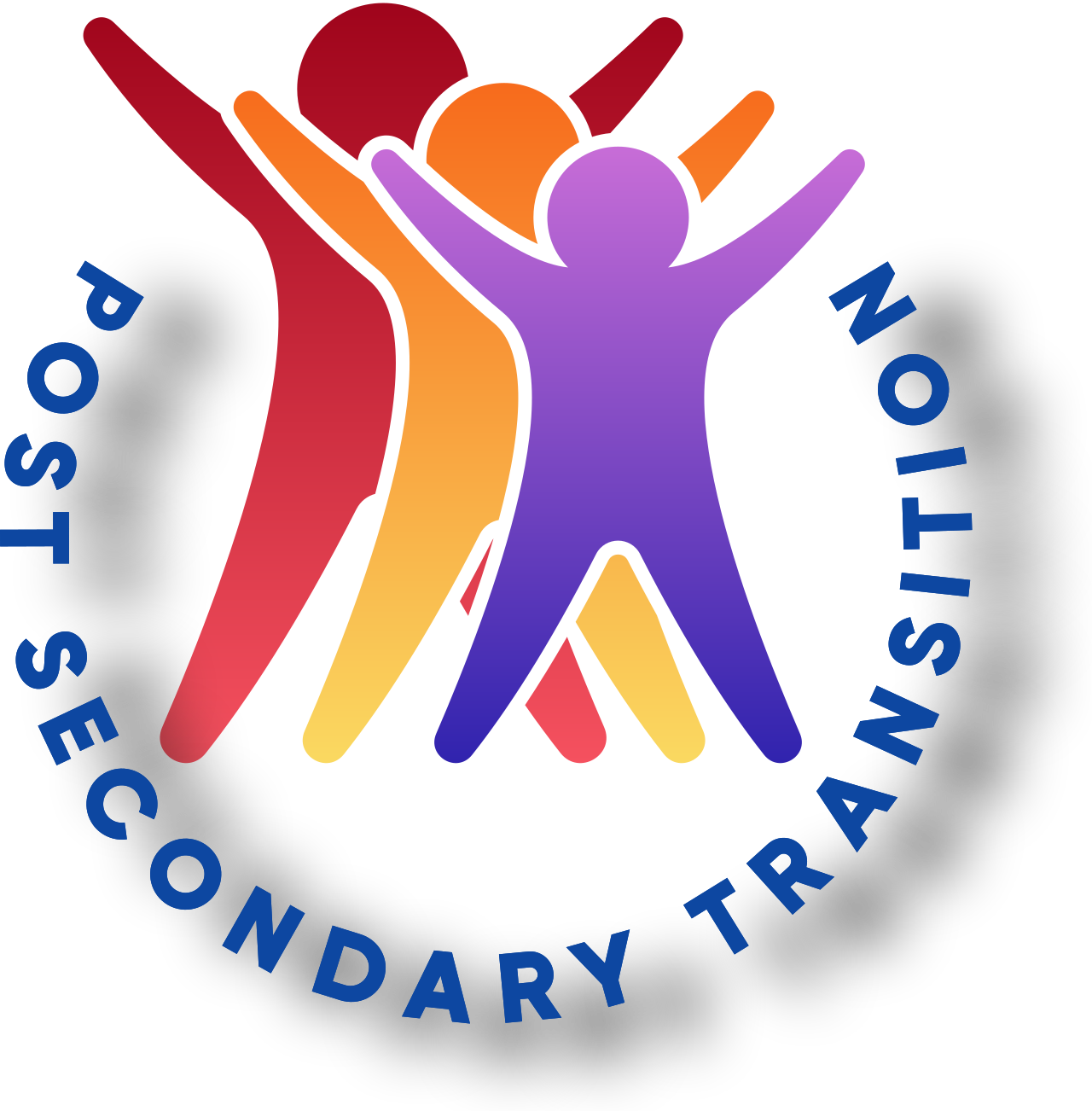Common Transition Acronyms & Definitions
Diving into post-secondary transition can feel like wading through an alphabet soup of acronyms. But fear not! This page can act as your acronym-vomit decoder ring. We've put in the elbow grease to break down all those confusing letter jumbles into plain English. No need for a “secret handshake” – let us be your guide.
For a comprehensive list, visit Service Coordination’s Glossary of Terms page
ABLE Account
The Stephen Beck, Jr. Achieving a Better Life Experience (ABLE) Act (P.L. 113-295) added Section 529A to the federal tax code to enable eligible individuals with disabilities to save money in a tax-exempt account that may be used for qualified disability expenses while still keeping their eligibility for federal public benefits.
College-based Transition Service
This refers to a range of support programs and resources provided by certain universities designed to help students with disabilities make the adjustment from high school to college.
Community First Choice (CFC)
A program created by Section 2401 of the Patient Protection and Affordable Care Act that allows states the option to offer certain community-based services as a state plan benefit to individuals who meet an institutional level of care. Maryland’s CFC program offers personal assistance, supports planning, nurse monitoring, personal emergency response systems, transition services, and items that substitute for human assistance such as technology and environmental adaptations. Services are provided in the eligible individual’s home or community residence.
Community Options Waiver (CO)
This waiver became effective January 6, 2014 and serves adults aged 18 years and older. It provides assisted living, senior center plus, family training, behavioral consultation, and case management services.
Community Personal Assistance Services (CPAS)
This program provides assistance with activities of daily living, nurse monitoring and supports planning to Medicaid recipients. Services are provided in the eligible individual’s home or community residence (previously known as Medical Assistance Personal Care or MAPC).
Comprehensive Transition Program (CTP)
A specialized postsecondary education program for students with intellectual or other developmental disabilities that offer supportive environments for students to continue their education, gain vocational skills, and develop independence to transition to employment and community living. More information can be found here.
Coordinator of Community Services (CCS)
A case manager who supports people in learning about and connecting to resources in their community, planning for their future and assessing the need for services and supports (formerly known as Service Coordinator or Resource Coordinator).
Crisis Prevention (CP)
The second priority category for services funded by Developmental Disabilities Administration (DDA). People in this category have been determined to have an urgent need for services, but do not qualify for Crisis Resolution. The person qualifies for this category by meeting one or more criteria as stated in the regulations.
Crisis Resolution (CR)
The top priority category for services funded by DDA. To qualify for this category, the person has to be in crisis by meeting one or more criteria as stated in the regulations.
Current Request (CU)
The third or lowest priority category for services funded by Developmental Disabilities Administration (DDA). To qualify for this category, the applicant shall indicate at least a current need for services.
Day Supports
Services which provide structured daily activities for individuals with developmental disabilities. There are several options under these services:
Day Habilitation – teaches skills for employment and/or community living. The service is designed for each individual and his or her goals for employment. You will take part in activities in places other than you home for the majority of the day. Day habilitation services are intended to increase independence and develop and maintain motor skills, communication skills, and personal hygiene skills related to specific habilitation goals that lead to opportunities for integrated employment.
Supported Employment – designed to assist you with accessing and maintaining paid employment in the community.
Community Learning Services – activities, special assistance, support, and education to help individuals whose age, disability, or circumstances currently limits their ability to be employed and/or participate in activities in their communities. They assist you in developing the skills and social supports necessary to gain, retain, or advance in employment.
Employment Discovery and Customization – Employment discovery and customization services are designed to help access employment or explore the possibilities and impact of work. These are time-limited activities, which include assessment, discovery, customization, and training activities.
DD Eligible
One of two DD eligibility categories for in which a person needs to meet criteria including: having a physical or mental condition other than a sole diagnosis of mental illness, a disability considered severe and chronic in nature, the disability was manifested before the age of 22, disability results in the person being unable to live independently and the person needs assistance to plan and coordinate services (DD-eligibility is required for accessing waivers and the full range of services funded by a DD).
DD-Funded Services
Any services which are purchased with the use of state (and, in some instances, federal) money through a Developmental Disabilities administration.
Department of Disabilities (DOD)
Many states or regions may have agencies or departments that focus on disabilities and related services; these agencies typically are charged with unifying and improving the delivery of services to people with disabilities by working with all state government agencies.
Department of Health
A department within a state’s government that serves to promote and improve the health and safety through disease prevention, access to care, quality management, and community engagement.
Department of Social Services
Social services are managed by local county/city governments. Local department of social services, funded by a State government, administers public assistance programs for low-income residents and those experiencing economic hardships.
Developmental Disabilities (DD) Agency
Agencies that provide funding and services to eligible individuals (may go by different names as designated by the state).
Digital Portfolios
An online collection of a student's work, achievements, and experiences, designed to showcase abilities and accomplishments within an educational context.
Eligibility Determination Division (EDD)
Determines financial eligibility for Medicaid under the waiver. EDD will review assets, income, and medical expenses and apply special financial eligibility rules under the waiver. Individuals must apply to the waiver regardless of their income and assets.
Enclave
A group of individuals working at the same community-based site with direct supervision.
Family Support Services (F/ISS)
The assistance provided to individuals under age 21 to enable participation in the community. Supports could include assistance locating & accessing education, recreational & social activities and providing training related to finances (money management, banking, tax preparation, etc.).
Functional IEP Goals
Goals present on an Individualized Education Plan that target skills useful & practical outside the four walls of the classroom environment (i.e. the community, work place, etc.)
P2Transition PodcastHome & Community-based Services (HCBS)
Provide opportunities for Medicaid beneficiaries to receive services in their own home or community rather than institutions or other isolated settings. These programs serve a variety of targeted populations groups, such as people with intellectual or developmental disabilities, physical disabilities, and/or mental illnesses.
Healthcare Transition
The process of moving an individual from one healthcare setting or provider to another.
P2Transition PodcastIndividual Support Services (ISS)
The assistance provided to individuals over age 21 to enable participation in the community. Supports could include assistance locating & accessing education, recreational & social activities and providing training related to finances (money management, banking, tax preparation, etc.).
Individual Plan (IP)
The foundation/roadmap of an individual’s services and supports. Developed using the person centered planning methodology. Individual plans address ways to assist an individual in developing various types of relationships which, in turn, works to increase a natural support system.
Individual Plan for Employment (IPE)
A personalized roadmap developed by vocational rehabilitation agencies to guide individuals with disabilities in achieving their employment goals. It outlines specific services, resources, and support tailored to the individual's needs, fostering a structured and targeted approach to career development and job placement.
Individual Service Plan (ISP)
A document that outlines the personalized support and services provided to an individual with specific needs or disabilities. It details the individual's goals, preferences, and the specific interventions and assistance they will receive.
Job Coach (JC)
A person who provides job training for a worker in a competitive location.
Medicaid/Medical Assistance
A program, funded by the federal and state governments, which pays for medical care for low-income individuals or families, as well as elderly or disabled individuals. To receive Medicaid, an individual must meet certain financial requirements and also must go through an application process.
Medicaid State Plan
A written agreement between a State and the Federal Government that outlines Medicaid eligibility standards, provider requirements, payment methods, and health benefit packages. A Medicaid State Plan is submitted by each State and approved by the Centers for Medicare and Medicaid Services.
Medical Daycare
Provides monitoring and therapies in a structured setting for people who have a medical need. Therapies are provided based on the need of the person being served. In some cases, attending medical day care on a temporary basis can help someone regain skills after a serious medical incident.
Personal Supports
A service that provides regular personal assistance to support community participation. Where available, Personal Supports can be provided in a person’s home, family home or in the community. Services may include bathing, toileting, eating and preparing meals, dressing and changing clothes, light housework including laundry (service may go by different names as designated by the state).
Provider Agency
An organization that offers support services and resources to assist individuals, often students with disabilities, in their transition from secondary education to post-secondary education or vocational training. Agencies may offer guidance, accommodations, and other forms of assistance to help students successfully navigate their new environment.
Respite Care
Short-term care provided to a person for the purpose of providing relief for the parent or primary caregivers. Respite care can mean many things to a parent/caregiver: time to relax, time to spend alone, time to spend with other family members, or assistance when emergency care is needed.
Social Security Administration (SSA)
A U.S. government agency whose primary focus is providing financial support to eligible individuals through programs such as retirement benefits, disability benefits, and survivor benefits.
Social Security Disability Insurance (SSDI)
A program that pays benefits to an individual (and certain family members) if/when the individual is “insured” (i.e. worked long enough and paid Social Security taxes).
Please note: SSDI is different/separate from SSI
Supplemental Security Income (SSI)
A SSA program that pays benefits to disabled adults and children who have limited income and resources. SSI benefits also are payable to people 65 and older without disabilities who meet the financial limits. Students may apply for SSI on their 18th birthday. They are considered a family of “one” and their income alone is taken into consideration.
Supported Education
This, typically, refers to an approach in education that provides additional support and resources for individuals with disabilities or other challenges to help them succeed in academic settings; this model is often applied in the context of higher education and aims to ensure that students with disabilities have equal access to educational opportunities.
Supported Employment
Provides assistance for people who are working jobs in the community. The help can be in the form of job coaching, educating co-workers or negotiating with employers to help the person be as independent as his or her abilities allow.
Targeted Case Management (TCM)
A service that manages multiple resources for Medicaid members. It is designed to help persons with intellectual disabilities, brain injury, or developmental disabilities gain access to appropriate and necessary medical services and interrelated social and education services. DDA TCM Provider Qualifications – Meets training, staffing qualification, and other state and federal requirements for case management/care coordination services – Meets federal criteria for conflict-free case management Role of Targeted Case Managers Targeted Case Managers facilitate the community-based assessment and planning process by working with individuals, families, service providers, and other agencies and individuals to create an individualized plan based on a comprehensive assessment of needs for each person. In addition, case managers assist individuals and/or parents or guardians in navigating the service system.
Transition Coordinator
A resource teacher, designated by a school system, for the purpose of providing parents information and supports to better understand the timeline of transition between the ages 14 to 21 (at which point, the student will exit the school system).
Transition Fair
Transition fairs are local events that work to provide families of students with disabilities with necessary resources that will focus on assistance; including provider information, financial programs, services, etc.
Transitioning Youth
Students transitioning from school to adult services are typically referred to as “Transitioning Youth.” Students may be eligible for a funding source through a state’s Developmental Disabilities Administration to assist eligible individuals in the transition from school to work after the age of 21.
Vocational Rehabilitative Agency
A state funded agency that provides leadership and support to enable individuals with disabilities to live independently. These agencies help people with physical, emotional, intellectual, developmental, sensory and learning disabilities go to work and keep their jobs by providing services such as career assessment and counseling, assistive technology, job training, higher education and job placement (may go by different names as designated by the state).



